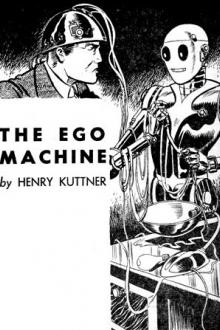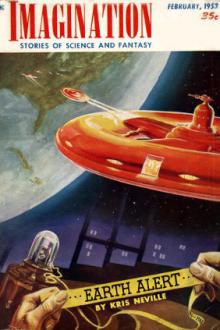Genre Other. Page - 318

ance by some publishing mogul? No, it was Joe Six-Pack, reacting to book recommendations from Amazon.com. The online store began suggesting the older book to millions of people whom it knew liked climbing books, based on their buying history. If you've shopped on Amazon, you've seen these recommendations yourself: People who bought this book also bought...
Many of the new readers liked Touching the Void so much, they wrote rave reviews on Amazon's site. These "amateur" book reviews, written by real climbers and armchair explorers, resonated deeply with the next wave of shoppers. More sales, more good reviews.
Ten years after the book's launch, Internet-powered word of mouth did something that no team of marketing wizards could do--it landed Touching the Void on the bestseller lists. The story was adapted for an acclaimed docudrama. Simpson, his writing career turbocharged, followed up with four successful adventure books, a novel, and lecture tours.

en floor that Friday, and rose with sore knees, aching shoulders, and red, rough hands. I never forgot the lesson Mama taught me. I must understand and respect those who might work for me.
Around that time, Mama entered into a business partnership with Meyer Weinrauch. Meyer's line of business was shoes, and he was opening a new store. While Meyer obtained merchandise from various wholesalers, Mama was to be in charge of the store.
The store was one the Eisenbadstrasse, outside the main Jewish district. Mama ran the business as smoothly and efficiently as she did her home. None of my friends had mothers who worked, but I accepted that my mother was different. I always believed Mama was a genius and could do whatever she set her mind to.
My friends were Jewish children who lived in our building and girls from clubs to which I belonged. I joined youth groups and we met on Shabbos afternoons to sing Hebrew songs and discuss religion and debate Jewish concerns. On Sundays, we went on outings

o Fomalhaut V.
It was a busy two weeks for everyone involved. Captain Peter Wayne, as a central part of the team, spent much of his time planning his attack. His job would be the actual climbing of the mountain where the double-nucleus beryllium was located. It wasn't going to be an easy job; the terrain was rough, the wind, according to Jervis, whipped ragingly through the hills, and the jagged peaks thrust into the air like the teeth of some mythical dragon.
Study of the three-dimensional aerial photographs taken from the Mavis showed that the best route was probably up through one end of the valley, through a narrow pass that led around the mountain, and up the west slope, which appeared to offer better handholds and was less perpendicular than the other sides of the mountain.
This time, the expedition would have the equipment to make the climb. There were ropes, picks, and crampons, and sets of metamagnetic boots and grapples. With metamagnetic boots, Wayne thought, they'd be

ell. Kadin stabbed hard, burying his black knife to the hilt in the man's throat. The small man gurgled and fell. Even in death his face was calm.
They rode hard that night and into the late morning. Sweat poured over Kadin's face and down his braids to his back. Every step his horse took was a new lesson in pain. He passed out at least twice but Lenda's cry woke him before he fell from his mount. If he had fallen, he would have died.
At high sun, when the red orb burned hottest spotted the ragged peaks of their destination, Ava Tog Kar. The ruins looked the same as they had when he had stumbled on them three years earlier. As far as he knew, no one knew of the ruins but him.
Two of the four stone towers tapering from their wide bases to the sharp tips, had crumbled to dust. The northern wall, built of huge sandstone bricks, stood with the remaining two towers. Kadin and Lenda rode around the wall and through a path of sinister granite statues. Each was shaped either as a naked man or wom

e at the desk-lamp. "F(t)--I mean, if you counted the kappa waves of my radio-atomic brain now, you'd be amazed how the frequency's increased." He paused thoughtfully. "F(t)," he added.
Moving quite slowly, like a man under water, Martin lifted his glass and drank whiskey. Then, cautiously, he looked up at the robot again.
"F(t)--" he said, paused, shuddered, and drank again. That did it. "I'm drunk," he said with an air of shaken relief. "That must be it. I was almost beginning to believe--"
"Oh, nobody believes I'm a robot at first," the robot said. "You'll notice I showed up in a movie lot, where I wouldn't arouse suspicion. I'll appear to Ivan Vasilovich in an alchemist's lab, and he'll jump to the conclusive I'm an automaton. Which, of course, I am. Then there's a Uighur on my list--I'll appear to him in a shaman's hut and he'll assume I'm a devil. A matter of ecologicologic."
"Then you're a devil?" Martin inquired, seizing on the only plaus

It is as it stands now the frank confession of what one man of the early Twentieth Century has found in life and himself, a confession just as frank as the limitations of his character permit; it is his metaphysics, his religion, his moral standards, his uncertainties and the expedients with which he has met them. On every one of these departments and aspects I write--how shall I put it?--as an amateur. In every section of my subject there are men not only of far greater intellectual power and energy than I, but who have devoted their whole lives to the sustained analysis of this or that among the questions I discuss, and there is a literature so enormous in the aggregate that only a specialist scholar could hope to know it. I have not been unmindful of these professors and this literature; I have taken such opportunities as I have found, to test my propositions by them. But I feel that such apology as one makes for amateurishness in this field has a lesser quality of self-condemnation than if one were dealing with narrower, more defined and fact-laden matters. There is more excuse for one here than for the amateur maker of chemical theories, or the man who evolves a system of surgery in his leisure. These things, chemistry, surgery and so forth, we may take on the reputation of an expert, but our own fundamental beliefs, our rules of conduct, we must all make for ourselves. We may listen and read, but the views of others we cannot take on credit; we must rethink them and "make them our own." And we cannot do without fundamental beliefs, explicit or implicit. The bulk of men are obliged to be amateur philosophers,--all men indeed who are not specialized students of philosophical subjects,--even if their philosophical enterprise goes no further than prompt recognition of and submission to Authority.

ere Tom Wolfe to have written it as a non-fiction title. That it was inspired by actual characters and events, and turned by Wolfe's expert hands into a compelling modern-day tale of murder and mortality, were enough to convince me that I could pull off the same sort of magic with my own "what if" scenario, swapping Silicon Valley for New York, and the personal computer business for bond trading.
That this was my first attempt at writing a novel goes a long way toward explaining the earliest rejections of the work, then titled "Silicon Dreams," by editors unlucky enough to have had it land with a thud on their desks. Somehow I'd lost sight of Mr. Wolfe's excellent illustration and found myself mimicking, all at once, the likes of Sidney Sheldon, Arthur Hailey, Jackie Collins, and, believe it or not, Stephen King (who happens to be my favorite mainstream read). With so many influences at play in the already befuddled head of an aspiring young writer with dreams of hitting the number one spot on all of t

e the bronze lion of St. Mark, which had been brought from Venice; under the Restoration a white marble statue of Louis XVIII.; and under Louis Philippe a plaster bust of Lafayette. Owing to the Palace of the Constituent Assembly having been nearly seized by a crowd of insurgents on the 22d of June, 1848, and there being no barracks in the neighborhood, General Cavaignac had constructed at three hundred paces from the Legislative Palace, on the grass plots of the Invalides, several rows of long huts, under which the grass was hidden. These huts, where three or four thousand men could be accommodated, lodged the troops specially appointed to keep watch over the National Assembly.
On the 1st December, 1851, the two regiments hutted on the Esplanade were the 6th and the 42d Regiments of the Line, the 6th commanded by Colonel Garderens de Boisse, who was famous before the Second of December, the 42d by Colonel Espinasse, who became famous since that date.
The ordinary night-guard of the Palace of th

ow I did it, I'm sure I can teach other people. I'm no different than they are; and I don't intend to be.
She went back to the bed and sat down and began to think.
And she discovered that she could remember the greater part of everything she'd ever read.
CHAPTER IV
Calvin practiced teleportation for endless hours. He kept the metal ball Forential had given him in almost constant motion.
He would exclaim delightedly and hurl it toward one of the twenty-seven other mutants in his compartment. Until the time he hit John in the back of the head with it, his intended victims had always parried it. John lay in a pool of blood, and Calvin began to cry--loud, shrill wails of despair and contrition. When Forential came, he knew instinctively what had happened.
Calvin represented the only failure the aliens had experienced in their mutation program; ten years ago his mind had ceased to develop. But for Forential's intercession, the c

think I must have been hypnotized. I stood there like a frozen image, and let that crippled cow-rustler rob those two women--take the rings from their fingers!"
"Oh, hold on; there's another side to all that, and you know it," the vice-president began; but Lidgerwood would not listen.
"No," he protested; "don't try to find excuses for me; there were none. The fellow gave me every chance; turned his back on me as an absolutely negligible factor while he was going through the others. I'm quick enough when the crisis doesn't involve a fighting man's chance; and I can handle a gun, too, when the thing to be shot at isn't a human being. But to save my soul from everlasting torments I couldn't go through the simple motions of pulling the pistol from my pocket and dropping that fellow in his tracks; couldn't and didn't."
"Why, of course you couldn't, after it had got that far along," asserted Ford. "I doubt if any one could. That little remark about the gun in your pocket did you up. When a man